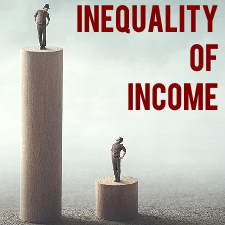Taxable Capacity | Meaning, Types, Factors, Significance
Table of Contents
What is Taxable Capacity?
Taxable capacity is a much debated concept. It refers to the maximum capacity that a country can contribute by the way of taxation both in ordinary and extra ordinary circumstances.
Taxable Capacity means the maximum capacity of the people of a country to bear the burden of taxation without much hardship. It is nothing but the maximum limit that a government can tax the people. If the government exceeds this red signal, namely the maximum limit, it will result in over-taxation.
As a result of over-taxation, the country experiences imbalance not only in the economy but also in the government itself. This may lead to overthrow of the government itself. Therefore, it is necessary to examine the objective and practical applicability of the concept.
The purpose of finding out the taxable capacity of any country or people is to know the limit of taxation to which it could be subjected for raising public revenue. This has to be done without creating higher adverse conditions in the economy which might defeat the very object of taxation. Taxable capacity has assumed importance in these days and this concept has become a controversial issue.

Definitions of Taxable Capacity
According to Dalton, the term “taxable capacity” is a dim and confused conception. He says that the term “absolute capacity” is a myth and a discussion on it must be banned.
But Findlay Shirras says that
Taxable Capacity is of great practical importance. It is useful for a government to know in general the maximum amount that people of the country can contribute by way of taxation.
According to Joshia Stamp, it is
Total production minus the amount required to maintain the population at subsistence level.
Indian Taxation Enquiry Commission defines this as
Taxable capacity is a relative concept. It is the degree of taxation beyond which productive effort and the efficiency as a whole begin to suffer.
Shultz Harris prefers the term “National Sacrifice Capacity” for the phrase taxable capacity. This is defined as the maximum proportion of their purchasing power that people can be made to surrender to their government in war time or during other emergency period. Taxable capacity at any rate is a relative concept and it cannot be measured with any mathematical precision. It may change between peace time and war time.
The term taxable capacity is used in two senses:
- in the absolute sense and
- in the relative sense.
What is Absolute Taxable Capacity?
The term absolute refers to the maximum amount of tax that a community can pay without experiencing any unpleasantness. It represents the maximum number of taxes that can be levied and maximum revenue collected from the people of a country.
Absolute taxable capacity refers to whatever could be taken away by the State after allowing for the barest of subsistence to the citizens, or as Shirras has stated, “Absolute taxability is the limit of squeezability”.
The main difficulty in this explanation is to ascertain the subsistence level of the country. It is very difficult to quantify the minimum subsistence level. If the entire amount so obtained after deducting the subsistence level from the total production is taken away in the form of taxes, it will affect not only the well-being of the people, but also the productivity and efficiency of the community.
After realizing these difficulties, Sir Josiah Stamp suggested an alternative measure, namely, the difference between the total production and total consumption. There are other indicators of absolute taxable capacity. If the additional taxation results in lower production or lower productivity or if it does not increase the revenue of the State, it then indicates that the absolute taxable capacity of the people has already been reached.
What is Relative Taxable Capacity?
This terminology refers to the respective contribution made by two communities for the common expenditure of the government. That is it is the capacity of the community to some common expenditure in relation to the capacities of other communities. For eg. there are two communities, namely the rich and the poor communities. The rich-people can be made to contribute more to a common expenditure than the poor people. The rich people have the ability to pay in view of their higher income.
Prof. Musgrave relates the notion of taxable capacity with the concept of income per capita. The higher the per capita income higher is the capacity to pay tax. Dr. Dalton says that absolute taxable capacity is a myth, while relative taxable capacity is a reality.
The criticism leveled against absolute taxable capacity by Dr. Dalton cannot be accepted completely. Though it is not possible to measure the absolute taxable capacity accurately, it cannot be ignored completely. It serves as a useful guideline for the government when it levies new taxes on its citizen.
Factors Influencing Taxable Capacity
The concept of taxable capacity is not very rigid. It is a moving concept. As the prosperity of nation increases, the taxable capacity of the people also increases. The taxable capacity of the people of a country is influenced by several factors. They are as follows:
1. Psychology of tax payers
If the people are prepared to make greater sacrifices, then taxable capacity is said to have increased. In times of war, the people are made to pay more taxes. People are generally optimistic during the period of prosperity and they are prepared to pay more taxes.
2. Distribution of Wealth
It is distributed equally, the taxable capacity becomes limited. If it is concentrated with few people, then they can be made to shoulder heavy burden of paying taxes.
3. Nature of taxation
If the tax system is scientifically framed, the taxable capacity increases. If the tax system produces adverse effects on the productive capacity of the people, this will reduce the taxable capacity.
4. Purpose of taxation
If the purpose of taxation is to raise resources to bring about economic development [on agricultural, industrial and infrastructural development], people of the country are willing to pay taxes. In contrast, if it spends huge money for stock piling and ammunition and war overheads, this will inevitably reduce the taxable capacity of the people.
5. Level of economic development
The taxable capacity of the people is determined by level of economic development of the country. Highly developed countries have greater taxable capacity than the poor countries.
6. Political conditions
It depends on political stability and internal prosperity. If there is peace inside and outside country, there will be encouraging atmosphere for expanded economic activity, which will in turn increase the taxable capacity.
7. Population
It depends on the size and rate of growth of population. If population increases at a faster rate than the national income rate, the taxable capacity becomes poorer.
8. Size of National Income
The taxable capacity of any community will depend upon the size of national income which itself will depend upon such factors as the volume of natural and other resources, the degree of utilization of resources, the state of technology, and so on. The richer a community, the higher is its capacity to pay taxes.
Thus, all these factors taken together determine the upper limit of taxation. As the economy goes on achieving prosperity and affluence, the taxable capacity also increases. Taxable capacity varies from country to country and from time to time in the same country. But there is no mathematical formula to measure taxable capacity.
However, the well-known economist Colin Clark has laid down 25 percent of the national income as a safe upper limit for taxation. But this is applicable to developed countries only. It is possible to increase the tax revenue every year by 10 to 15 percent without causing unpleasantness to community.
Significance of the Concept of Taxable Capacity
The knowledge of the taxable capacity of the community is bound to be of great use to the government in many ways and under different circumstances.
1. The information will be useful for the mobilization of economic resources for purposes of economic planning.
2. During periods of war, it is essential for the government to know the maximum amount which the people can contribute for the prosecution of the war.
3. Even in normal times, it will prevent government from imposing unnecessary taxes which may prove irksome than productive which may result in discontent among people.
4. The concept is of value in federal finance. In federal finance, comparison has to be made between the different contributors in order not only to allocate the burdens of taxation but also to facilitate to the solution of the various problems connected with the financial relations between the constituent state and the federal government.
Infographic on Taxable Capacity


